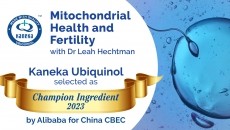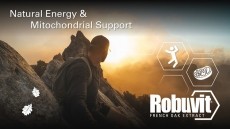LycoRed co-beadlets offer carotenoid advantages
carotenoids in their product formulations and still leave room for
other ingredients, thanks to its vegetarian co-beadlet technology.
The Israeli-company shored-up its presence in the carotenoids sector last year with the acquisition of the US nutrition division of Buckton Scott (now LycoRed Corp), and is striving to be the leader in the natural carotenoids business offering each of the carotenoids.
It says that its co-beadlet technology allows for the combination of natural or nature-identical lycopene, beta-carotene, lutein and zeaxanthin into a single formulation that is over 20 per cent carotenoids by weight.
The multi-carotenoid innovation has been made possible by a beadlet matrix developed by LycoRed Bio (the LycoRed subsidiary formerly known as Biodar). The same matrix has also been used for LycoRed's BetaCote beta carotene vegetarian beadlets, which have shown to have remarkable stability.
Since this stability is also a feature of the multi-carotenoid beadlets, it is said to remove the need for formulators to use overages of more than 50 per cent to compensate for oxidation, as they have done in the past.
Moreover, marketing director Udi Alroy said: "Our co-beadlets simplify the manufacturing process, since only one product needs to be handled, whether it is weighing, inventory management or accounting."
He added that the technology was developed in response to market need, and that it can be tailored to suit the specific demands of each customer.
It is particularly applicable for use in tablets and hard shell capsules, and will find uses in multivitamins, where formulators are challenged to fit in a great many individual nutrients.
As well as the BetaCote beta carotene, the company also has the capability to offer the other carotenoids separately - although Morris Zelkha, president and chief executive of group, told NutraIngredients.com in December that it will probably contract out part of its lutein production.











